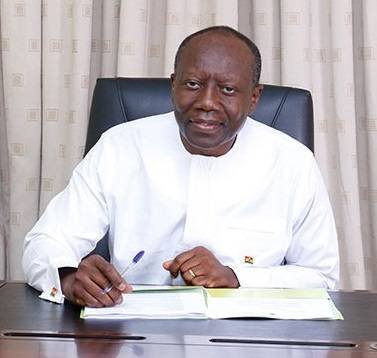The implementation of the three new and revised taxes projected to rake in about GH¢4 billion domestic revenue annually, took off yesterday across the country.
Introduced in the 2023 Budget statement and Economic Policy to shore up the country’s revenue, they are Excise Amendment Act, 2023; Income Tax Amendment Act, 2023; and the Growth and Sustainability Levy Act, 2023.
The taxes are said to be crucial to aid the government’s quest to facilitate the Board Approval for the $3 billion International Monetary Fund (IMF) Programmestaff-level agreement.
Passed by parliament on March 31, despite opposition from minority in parliamentary and the business community, the new levies received Presidential assent last month.
Ahead of the implementation, the GRA issued a notice to give businesses sufficient time to configure their systems for the taxes since the laws were passed.
Citinewsroom reports that the Excise Duty Amendment Act has been expanded to cover some items and commodities that were previously not captured, which has resulted in increased prices for processed fruit juice, cigar, mineral water, spirits, wines, and sparkling wine.
The Income Tax Amendment Act now charges a minimum of five percent on firms declaring losses for five years while individuals earning income beyond ¢500 would attract some taxes, and the more one earns, the more taxes one will pay to the state.
For betting, 10 per cent of earnings will be paid to the state, while lottery and gaming firms will pay 20 per cent of their gross revenue.
Individuals who receive gains from investment assets or liabilities and other non-gift-related earnings may have to pay 25 per cent of the value to the state.
The Growth and Sustainability Levy Act requires banks, non-bank financial institutions, telecom companies, and firms working in the oil sector to pay five per cent of their profit before tax to the state.
Mining firms, oil and gas companies will pay one percent of their gross production, and all other firms will pay 2.5 per cent of their profit before tax to the GRA.
Before the implementation, some trade unions in the country expressed their discontent with the three revenue tax bills.
The President of the Ghana Union of Traders Association (GUTA), Dr Joseph Obeng, expressed disappointment with the laws explaining that it would affect the rate of tax compliance by businesses.
He said Ghanaian businesses were particularly not competitive in the West African Sub-Region due to the high taxes that they had to pay.
According to the Trades Union Congress(TUC)’s Deputy Secretary-General, Joshua Ansah, the passage of the three new revenue taxes would make life more difficult for Ghanaians, as many of the new taxes would be passed on to consumers and lead to massive job cuts.
Similarly, the spokesperson for the Food and Beverages Association of Ghana (FABAG), John Awuni, said it was disappointing that Ghana’s lawmakers disregarded the cry and agitations of the people and approved the bills.
BY TIMES REPORTER

